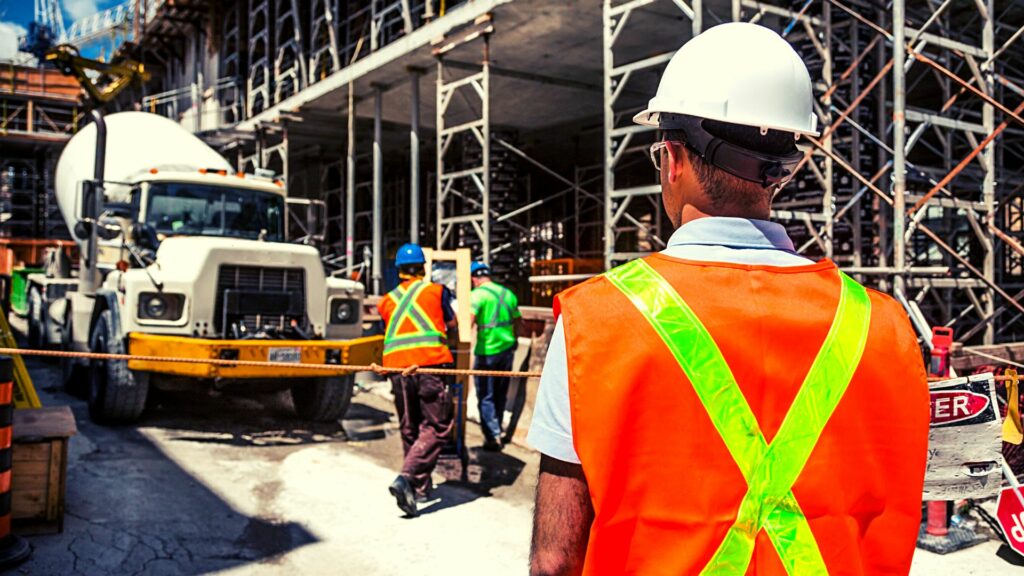Some real property transactions are subject to sales and use taxation. Sales and use taxation in construction is a complex area affecting contractors and stakeholders.
Many contractors consider themselves “consumers” of construction materials, and this incorrect assumption can land you in legal trouble. Contractors are sometimes considered “retailers” of construction materials and services, requiring them to collect construction sales tax.
Each state has different tax requirements for the construction industry. Contractors must understand and register the relevant applicable tax types in their operating states.
Similarly, customers must request proof of proper tax registration from the contractor. Customers are exposed to unexpected audit risks when they work with contractors who are not properly registered.
Construction businesses can work with a vetted sales tax expert to determine their sales tax liability for every project. They will ensure that you bill and quote effectively and avoid paying for tax expenses out-of-pocket. You can also take advantage of special tax breaks like when you build in an “economic opportunity zone.”
As a contractor, you must know if construction labor is taxable in the state where you are completing a job. Find out if the state requires you to pay sales tax on supplies and materials. This article discusses construction sales taxes and how they impact your business.
Table of Contents
Construction and tax
The taxation of construction contracts differs from state to state, but a few general rules are applied across the states.
Sales of real property are exempt from sales tax across all states. A contractor who converts tangible personal property (TPP) into real property is therefore exempt from sales tax because they are deemed the “consumer.” The taxation of lump sum contracts typically follows this treatment.
In some states, the taxability of the contractor is determined by its form. For example, separated contracts could deem the contractor a “retailer” in some states. Since the contractor sells materials before incorporation into real property, the state requires sales tax on the selling price of the materials.
A contractor can be deemed a retailer of certain (but not all) items sold to a customer under a “separated” contract. Such a case may occur if a contractor transfers items to a customer that do not get incorporated into real property. The contractor is then required to collect sales tax from the customer and remit it to the authorities.
Additionally, the contractor is generally allowed credit if they already paid tax on tangible personal property such as window coverings and appliances.
Property owners and contractors can avoid legal issues by following some taxation best practices when developing a construction contract.
It is important to correctly define the project’s scope with sufficient specificity and detail. The specificity helps define the nature of the project and the financial terms. The contractor can then determine the correct tax applied to the project contract.
It is crucial that the contract clearly defines what work is involved and the materials that will be acquired and used. The contract must also define the tax responsibilities of the contractor and the client.
The contract must consider the location and type of project to take advantage of tax planning opportunities like enterprise zones. In Washington, for example, the construction of corporate headquarters within community empowerment zones is exempt.
The client ensures that the contractor is well-informed on tax planning opportunities. The client should not assume that the contractor will inform them of tax minimization opportunities.
The contractor should ensure the client is informed of all tax planning opportunities during the bidding process. Researching is a great way for both parties to save costs.

Sales tax on construction services
Sales tax is generally charged on tangible personal property, but labor, including construction services, is typically deemed non-taxable. However, construction labor is considered a taxable service in states like New Mexico, Arizona, and Hawaii.
After substantial completion of a construction job in these states, the law requires you to collect sales tax. Contractors must stay updated on all states' sales tax laws because state laws are continually evolving. Texas and North Carolina, for example, have been expanding their definition of taxable services.
Sales tax on construction materials
State taxing authorities generally deem construction industries as “consumers” of the construction materials they purchase to complete projects. When contractors buy sand or lumber for a project, they are supposed to pay sales tax to the seller while making the purchase.
Construction companies may work on “lump sum” payment terms and typically charge any sales tax paid to the client. However, as the “consumer,” you are not required to charge the sales tax on materials to clients.
Several states consider construction companies to be the “retailers” of construction materials. As a “retailer,” you can avoid paying sales tax at the time of purchase by presenting a resale certificate. In this case, the state requires you to charge the correct sales tax to your client.
Construction materials are subject to sales tax at the time of purchase. Materials or supplies purchased to complete a construction project are taxable. Sales tax is not paid upon the sale of finished construction. Contractors can take advantage of the fact that any markup charged to the customer is not taxable.
In states where construction contractors are considered “retailers,” the contractor does not have to pay sales tax at the time of purchase. This treatment generally applies to itemized contracts and, to a lesser degree, lump sum contracts.
States which recognize contractors as “retailers” in itemized contracts include Mississippi, Arizona, New Mexico, District of Columbia, Indiana, Texa, Colorado, Hawaii, and Nebraska.
Mississippi, Arizona, New Mexico, Hawaii, and Nebraska are the only states that recognize contractors as “retailers” in lump sum contracts. These states essentially allow contractors to purchase materials “tax-free” and then cut the authorities a check after selling the property.
The states that require contractors to pay sales tax at the time of purchase may provide exemptions to this rule. However, the exemption is dependent on the type of clients and the type of contract. For example, governmental agencies and non-profit organizations may be exempt.
The contractor can choose whether to include a provision covering the payment of sales taxes. The contractor must consider the right sales tax rates when bidding for and negotiating a contract. Understanding the tax rates required by the state you are working in is critical.
Different tax scenarios
Although some generally accepted rules exist in construction sales taxation, each state has its rules and regulations. These laws are constantly reviewed, so it is important to stay updated. Let us discuss common sales tax scenarios that you may encounter.
Working for nonprofits or Governmental agencies
Working for nonprofits or Governmental agencies presents added complexity. Many governmental agencies and nonprofits are exempt from sales tax, which allows the contractor to purchase materials tax-free on their behalf.
However, some states do not allow contractors to act as the clients’ agents, and it is best to request the client to purchase materials themselves. You can take advantage of the client’s tax-exempt status, but this will increase the difficulty of the tax planning process.
Extra caution is important when navigating sales tax in nonprofit organizations. Some states dictate that nonprofits are only tax-exempt when buying materials for projects that directly support their mission. You may be required to pay sales tax if the project does not directly impact the organization's mission.

Construction projects for resale
When building a project for resale, the contractor may be considered a “retailer” and therefore allowed to purchase construction materials tax-free. However, some states may still require contractors to pay sales tax on construction materials. Some states may allow the contractor to claim the sales tax credit.
Subcontracting
Subcontractors do not usually work for the end user of “consumer.” Subcontractors should pay sales tax on materials and supplies to complete a project. The sales tax should be factored into the pricing for the subcontracting services.
Some US states might allow subcontractors to consider themselves “retailers” of the materials and supplies and charge the tax to the general contractor or client. If the subcontractor uses a resale certificate at the time of purchase, they must collect sales tax from the contractor.
However, the contractor may also provide the subcontractor with a resale certificate and charge the client the sales tax. If the state discovers that nobody collected sales tax, the subcontractor must present a valid resale certificate from the general contractor. Otherwise, the state will require that the subcontractor pays the tax.
Summary
Construction sales tax is complicated because each state has its rules and laws. Contractors and property owners, therefore, need to research and understand their tax obligations in the state where the project is to be done.
Contractors are generally required to pay sales tax at the time of purchase. However, some states may allow contractors to charge sales tax to the client. Some projects may be exempt from sales tax depending on the nature of the project and the type of client.
FAQs
When are construction materials subject to sales tax?
Construction materials are subject to sales tax at the time of purchase.
Must construction contractors collect sales tax?
Yes - construction contractors must collect sales tax where required and remit them to the state.
Is construction subject to sales tax in California?
Construction is subject to sales tax in California and is applied to the contractor’s gross receipts. However, the client pays tax if the sale of materials occurs before the property is brought into California.
Do contractors charge sales tax on labor in Florida?
No - Florida does not require contractors to charge sales tax on labor to the client.

